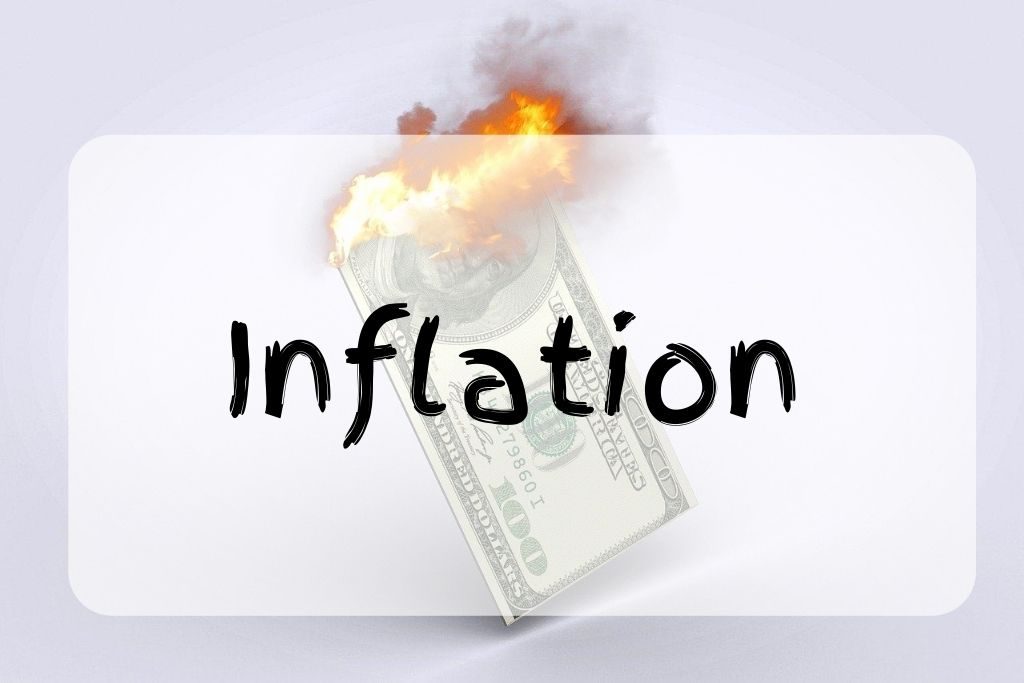What Is Inflation?

Definition of Inflation
- In simple terms, inflation is when the prices of goods and services increase over time.
- While the prices of goods and services increase, the purchasing power or value of money decreases.
Want to learn more financial ratios?
Get the eBook explaining some of the most useful ratios for free now.
What Impacts Inflation?
- The two main things that can impact inflation are the wages people receive and the prices of raw materials.
- When wages increase, we experience inflation; when the prices of raw materials go up, we experience inflation. This movement is called cost-push inflation.
- Demand-pull inflation occurs when there is a strong demand on the consumer’s end.
- If there is a very high demand and the supply levels aren’t matched, prices go up hence causing inflation.
How to Calculate Inflation?
[(final CPI index value – initial CPI value) ÷ initial CPI value] * 100
- CPI is known as the consumer pricing index, which measures the changes in prices based on a weighted average market basket of goods and services.
Why is Inflation Important?
- Inflation works as a motivating factor to utilize any labor or resources that are not optimized to full potential.
- Inflation also helps avoid the paradox of thrift, which claims that if prices fall consecutively, then people will wait and look for better deals.
- If people are constantly waiting for better deals, then the aggregate demand will fall, reducing production and economic productivity.
- Inflation is also vital for people who have taken out loans. This is because the money borrowed becomes less valuable over time and becomes easier to payback.
- Therefore inflation is crucial as it pushes people to borrow money.
Inflation in Practice
- For example, if one gallon of petrol costs $1.50 in 2000 and one gallon of petrol now costs $2.5, then how would you calculate the inflation?
- 2.5 – 1.5 = 1 -> 1/1.5 = 0.67 -> 0.67*100 = 6.7% therefore, the inflation went up by 6.7%.
Learn some of the most useful financial ratios!
Don’t miss this free eBook.
